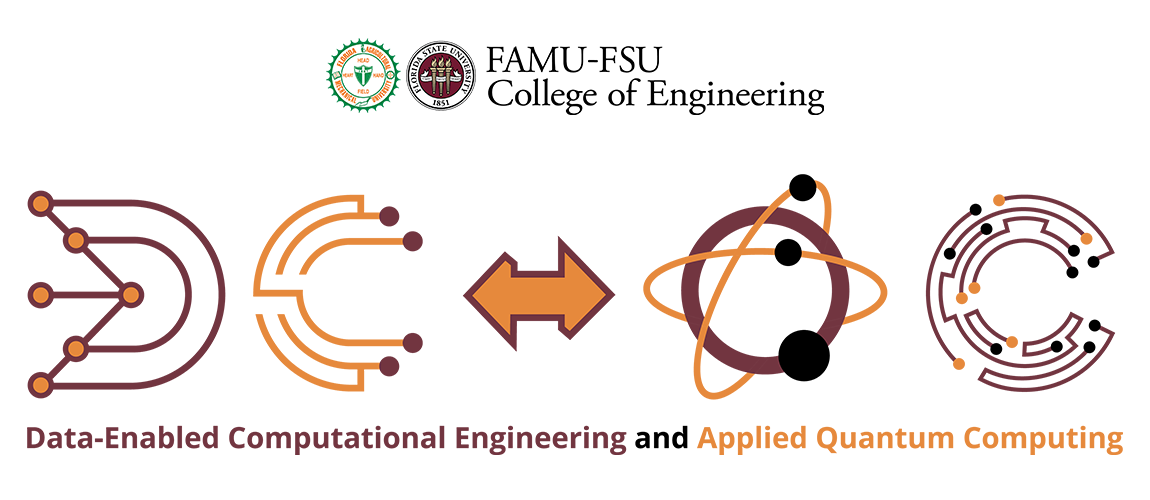
Computation and data-enabled techniques will be an important factor in solving complex engineering problems in the future.
Future-focused Research and Education in Computational Engineering and Data-driven Methods
The Data-Enabled Computational Engineering and Applied Quantum Computing (DC-QC) initiative at the FAMU-FSU College of Engineering is the hub for cutting-edge research and education in computational engineering and data-driven methods. By uniting the universities’ ongoing AI and computational research efforts, the DC-QC program focuses on developing innovative solutions to critical scientific and societal challenges through interdisciplinary, cyber-enabled approaches.
Vision
DC-QC aims to position the college as a global leader in advancing computational and data-driven methods for practical applications and hardware experiments, integrating emerging technologies into interdisciplinary research and education. Leveraging cutting-edge engineering infrastructure and expertise, we will foster new collaborations, attract top researchers and students and create a dynamic intellectual community that addresses complex engineering challenges on a local, national and global scale.
The DC-QC interdisciplinary graduate program equips students with cutting-edge computational and data-driven skills to solve complex engineering challenges, fostering collaboration and innovation across research fields.
Graduate Initiative
The interdisciplinary graduate program equips students with cutting-edge skills in AI, high-performance computing and quantum technologies to thrive in today's rapidly evolving tech landscape. Offering a multidisciplinary curriculum with courses in modeling, computation, algorithms, quantum computing and more, the program prepares students for careers in national labs, academia and industries leading advanced modeling and simulation. Participants will master high-performance computational engineering, machine learning and quantum computing, while gaining expertise in software tools like MATLAB, Python, TensorFlow and Quirk, bridging physics-based modeling with data science.
Mission
DC-QC is an interdisciplinary graduate program designed for students who seek to used state-of-science computational and data enabled skills to tackle difficult engineering problems. We foster collaborative, interdisciplinary capacity to develop and apply innovative computational methods for research challenges.
Values
Education, Community, and Future-focused Innovations



























